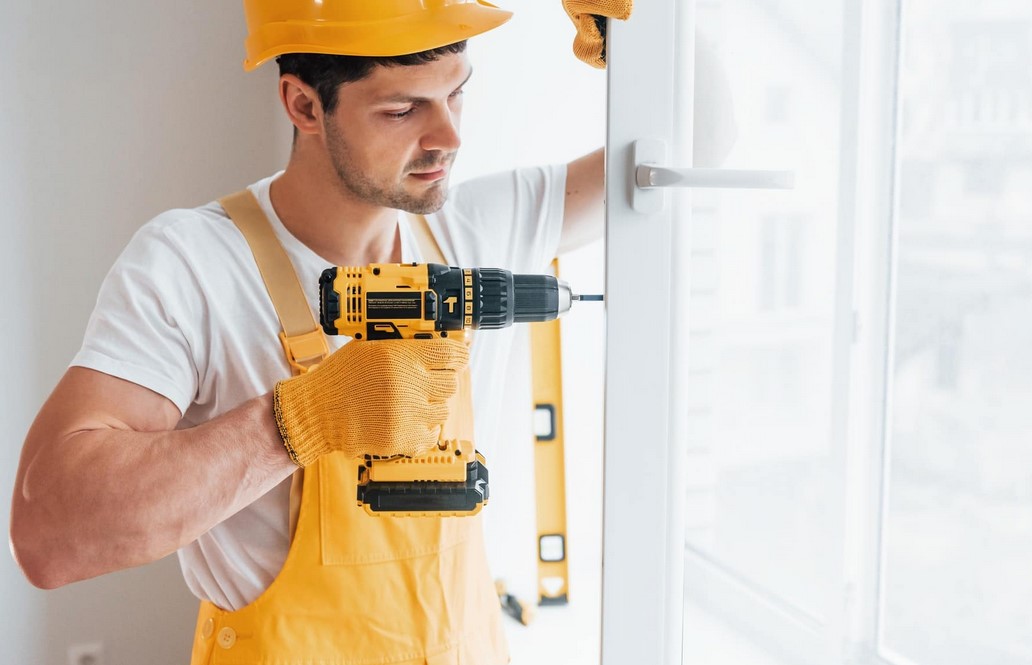Here are some easy tips on how to avoid the common mistakes people make when hiring a handyman contractor. When it comes to home repairs or improvements, many people find themselves at a loss because they are either unable to complete the needed repairs or they simply do not have the time.
In either situation, the best thing to do is to hire a professional handyman. But, what qualities should you look for in a handyman and how can you be sure that he/she will be the best person for the job? These are common questions and should be answered prior to hiring a professional contractor.
When it comes to home repairs or improvements, many people find themselves at a loss because they are either unable to complete the needed repairs or they simply do not have the time or skill. In the case of myself; operating as America Home Services Inc., I have in excess of well over 30 years experience doing home repair, improvements and new construction.
In either situation, the best thing to do is to hire a professional, (meaning one who is serious about doing quality work) handyman. But, what qualities should one look for in a handyman and how can you be sure that he/she will be the best person for the job? If you have you ever had a problem with a home handyman service or contractor. You’re not alone. Avoid the following mistakes when hiring a contractor.
1. Not being clear about what you want. When you don’t know what you want, you might not like what you get. If you change your mind and change the job halfway through, the contract – and price – will change.
Hint: it won’t get cheaper. Be clear on what you want done.
2. Not getting it in writing. Hearing “I didn’t say I was going to include the gutters,” could be a problem, or you could point to the contract.
3. No dates in the contract. Do you want the job finished this year? Be sure you have it in the contract.
4. Too much money up front. Deposits are a reasonable request when contracts are signed. America’s Home Services, Inc. Generally expects (but not always a deposit of 1/3 to ½ down on job estimates of $400.00 dollars or more but not on smaller jobs. This is only because in the area of my operations there have not been any payment problems or bounced checks.While many small handyman outfits may need money for materials, roof flashing for example. In fact, most often I do not charge for nails, screws, small amounts of caulking, patching compound, drywall and at the like so long as the aggregate material bill is less than $20.00. Most small handyman outfits will need money for materials prior to the start date. But never pay in full before the job is finished.
5. Unlicensed contractors. This can be okay, if they know what they are doing (As American Home Repair I operated they way for years). A license doesn’t mean you get expertise, but it does mean you get leverage. Most licensed Contractors will right their wrongs to avoid losing that license. Yet you should know that a licensed contractor can enforce payment in a court of law. This also means that a licensed contractor can place a lien on your home, then force the sale of your home if the court finds in his favor. America’s Home Services’ business model is to limit my scope of operations to only very small home repairs, much like a builders punch list of things to be done prior to the sale of a new home.
6. Hire from online those with decent reviews. Talk to friends who had work done, or talk to Lowes Home Improvement store. Get a recommendation based on a similar job to yours.
7. Assuming there will be no problems. Delays due to weather, employees quitting, and more will happen. A few problems is okay, but it’s not okay if the handyman can’t work out the issues to your satisfaction.
8. Expecting neatness. Guess what? It is sometimes more efficient to leave things laying where they’ll next be used. There will be messes, so prepare accordingly. Cover up things if it will be a dusty job, for example. Also, be clear in the contract that the jobsite will be cleaned up at the end of the job.
9. Thinking contracts eliminate problems. Contracts help, but unreasonable people on either side of a contract can ignore them, or even use literal readings to make things worse. Find a handyman service you can work with, and keep your eyes open.

Comments
Post a Comment